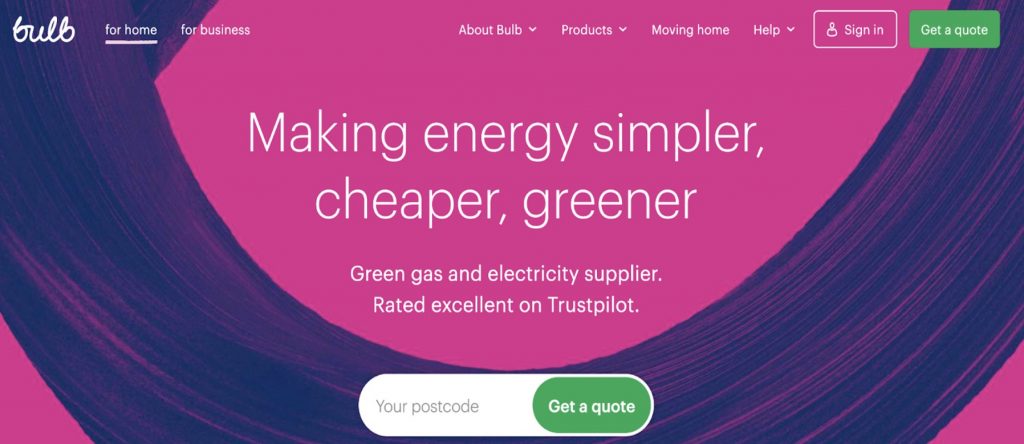Daniel Groves
It’s never been more important to make business more sustainable. Almost half of UK companies plan to increase their environment-related spending by this summer, according to HSBC’s Made for the Future report. But being an eco-friendly, sustainable or ethical business takes more than just being conscious of their waste management and recycling, or off-setting your carbon footprint by planting some trees. Making a large and lasting impact can be far more beneficial to people, planet and profit.
More and more startups are emerging that not only help consumers to make conscious choices, but also enable fellow business owners to work towards sustainability. In this article, we will round up six companies that are offering solutions to businesses to help them be more sustainable, while also presenting exemplary best practices.
Bulb
Renewable energy supplier Bulb has expanded greatly since its start in 2014. With around 1.5 million members, it is one of Europe’s fastest-growing startups. Challenging the ‘big six’ energy providers and showing that renewable energy isn’t more expensive, Bulb offers 100% green energy, generated from natural, renewable sources including wind, the sun or waves as opposed to burning fossil fuels like coal or oil.
Not only do Bulb offer domestic tariffs, but they also have green business contracts, allowing businesses to lower their greenhouse gas emissions. Switching to renewable energy at home or in the office can really help to reduce air pollution and fight the climate emergency.
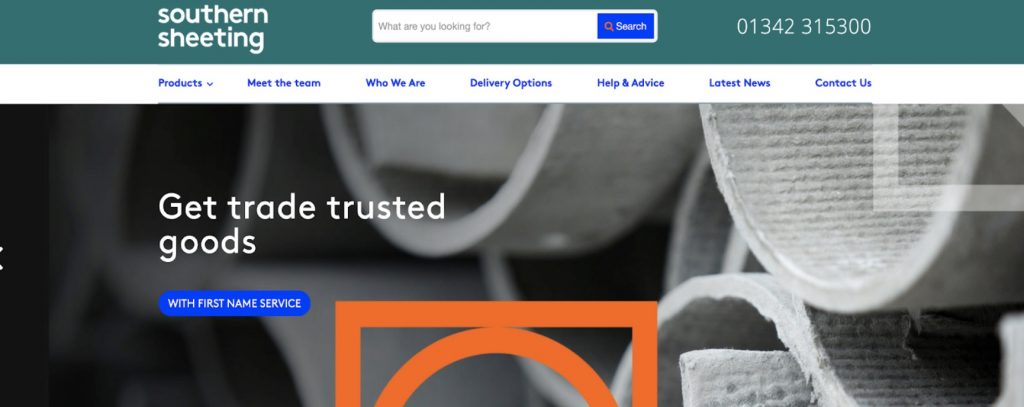
Southern Sheeting
The construction, demolition and excavation industry generates a staggering 62% of total UK waste! So sourcing materials and creating processes that reduce resources and ongoing impact on the environment is vital in the sustainability journey.
Southern Sheeting are a specialist team of experts in roofing and cladding who have adapted to consumer demand and embraced innovation in new and sustainable materials. They use suppliers that work alongside the Green Building Council to transform the way buildings and communities are designed, built and operated. Their Bison Fencing System is made with 95 percent recyclable materials and they’ve added an electric forklift truck to their warehouse to reduce their carbon footprint and environmental impact, and further affirming the death of diesel.
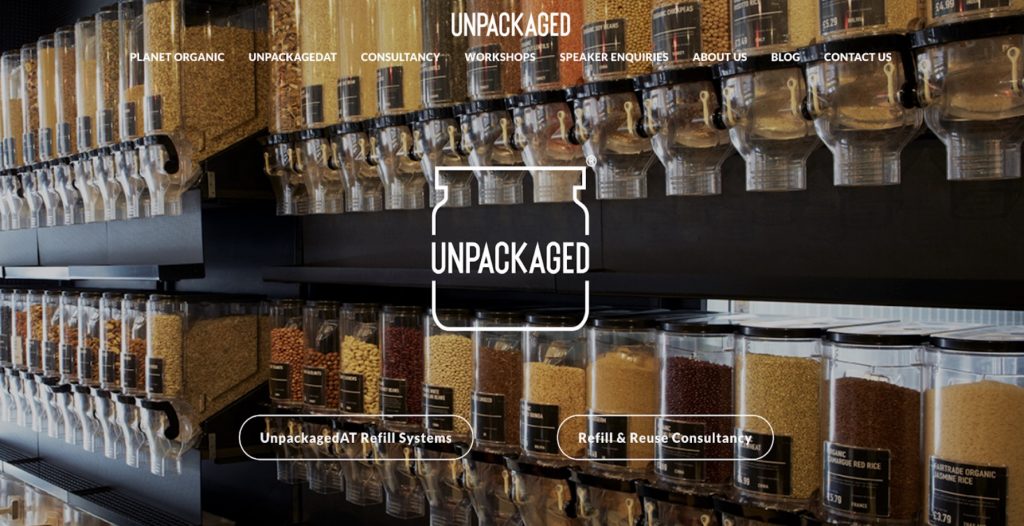
Unpackaged
Reducing single use plastic has inspired various ‘zero waste’ shopping destinations, including major supermarkets like Asda introducing refill stations. However, startup Unpackaged was ahead of the trend. Launching in 2006 as a market stall, the company now has three shops across London to help customers shop plastic free and buy in bulk.
However, what sets them apart is the consultancy service they provide to businesses. They have been working with businesses to help them shift to zero waste retail business models, and even got supermarket giants Waitrose & Partners on board, launching Waitrose Unpacked which is set to expand to more locations this year.
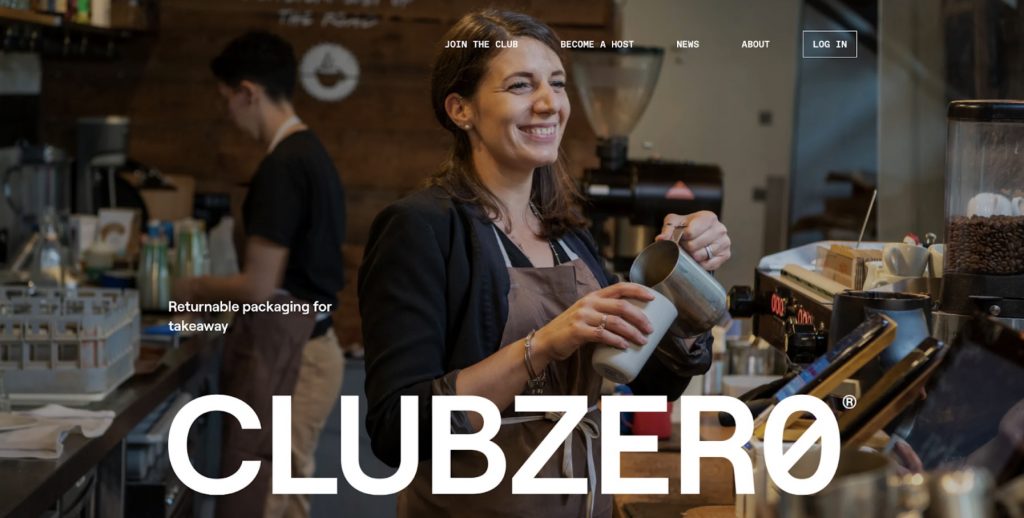
CLUBZERO
Another startup tackling single-use plastic in the UK, CLUBZERO, formerly CupClub provides an end-to-end returnable packaging service to close the loop and move towards circularity in business. They have already helped reduce companies’ single-use plastic usage by up to 47%!
The production of their products use half the carbon used to make disposable versions, and even when washing and reusing the cups, they use as minimal water as possible. This UK based company also manufactures everything in the UK, reducing their carbon footprint and setting an example for other businesses’ on how to support and thrive in a circular local economy.
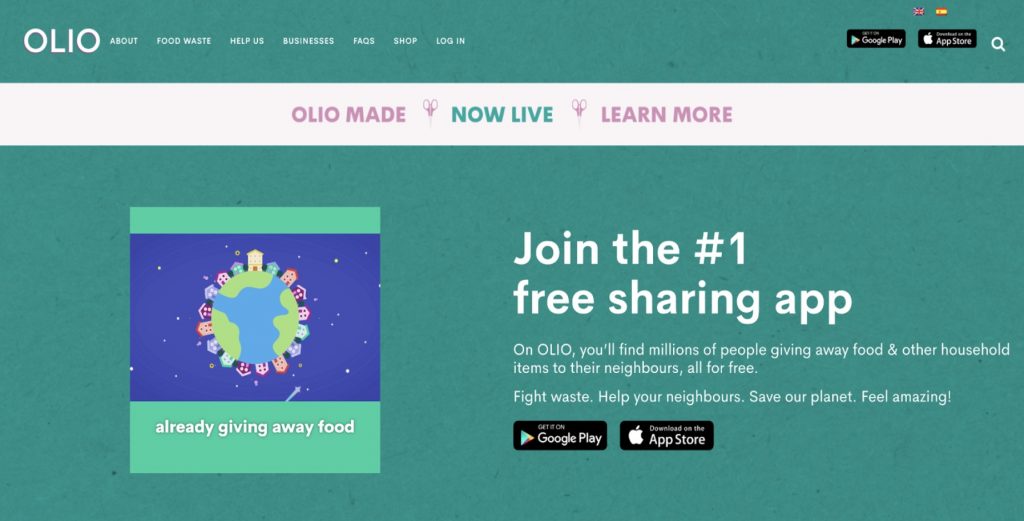
Olio
In keeping with hospitality business, food-sharing app Olio strives to reduce food waste by connecting people with local businesses to share surplus food. What’s more, it’s free! 4.5 million tons of food and drink are wasted annually in the UK. So to combat this, Olio has saved 2.9 million portions of food from waste, and successfully shared food between 1.4 million people across 49 countries! They have partnered with the likes of Sainsbury’s, Tesco and Pret a Manger to help accelerate their growth and get much needed food to mouths instead of landfills.
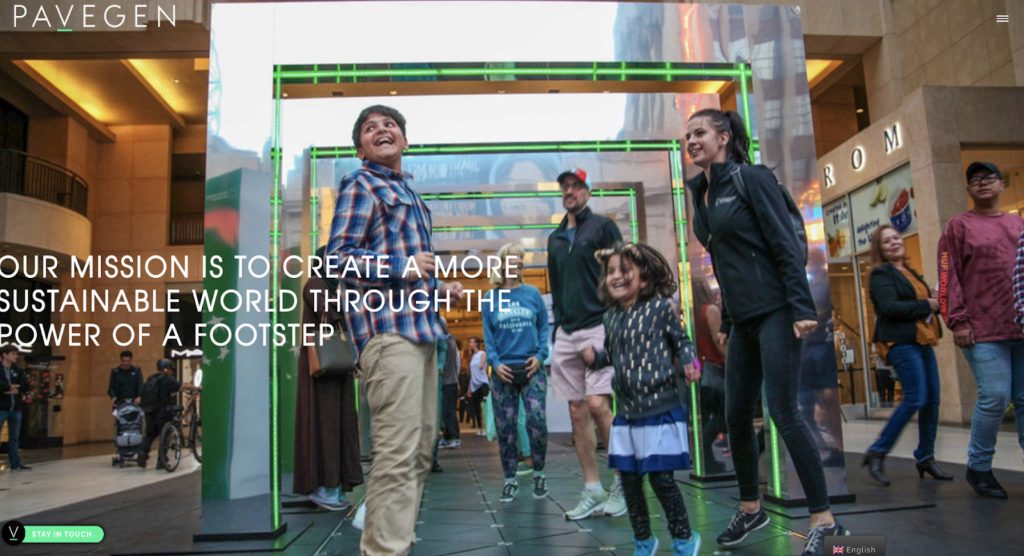
Pavegen
UK founded startup Pavegen has created interactive pavements that convert footsteps into T turns footsteps into kinetic energy. This incredibly innovative tech process is possible via electromagnetic generators placed in the pavement panels. These have been installed in high foot-traffic areas, such as shopping centres. They’ve even used footfall to power a floodlit football pitch.
In the UK, Bird Street, just next door to Bond Street Station in London, has a Pavegen walkway. Why not have a stroll and produce some joules? Every step taken on their walkway generates between 2 and 4 joules of off grid electricity. Definitely a step towards sustainability!
Final Thoughts
Individuals can make an effort to influence businesses to be more sustainable through purchasing power. However, to make a much bigger impact, the responsibility has to be within businesses themselves. Innovations in the industry can inspire change, and provide businesses with solutions to problems they are facing.
Start ups have the opportunity to present new ways of thinking and different approaches to business that can have an immediate and long standing effect on future processes. From offering a product to tackle single-use plastic, to turning everyday activities, like walking, into energy, it is an exciting time for sustainable business.

